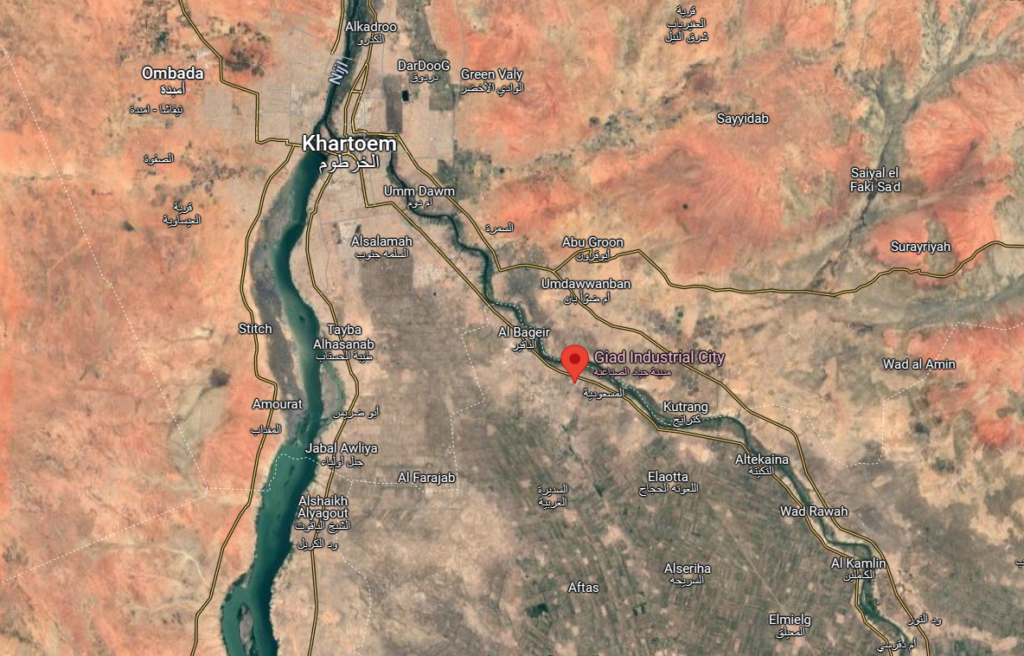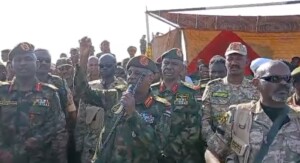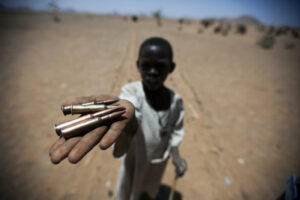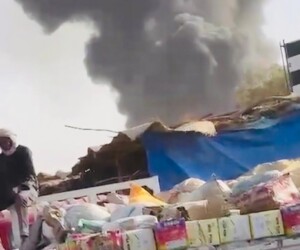Sudan war: Fighting over Khartoum continues, army advances from the south and east

GIAD Industrial Area, 45 km southeast of central Khartoum (Google maps)
The Sudanese Armed Forces (SAF) has taken control over areas south of GIAD Industrial City, 45 kilometres south of central Khartoum. Army units are approaching the southern and eastern borders with Khartoum state. The army also reported victory over the Rapid Support Forces (RSF) in the southwestern part of Khartoum.
The army yesterday announced its control over El Tekeina, El Maseed and El Noba, south of the large GIAD industrial complex*. Army soldiers posted several video clips on social media confirming their control over these three areas.
The SAF, that regained large parts of El Gezira, including the capital Wad Madani, last month, is steadily advancing to Khartoum. On Tuesday, army troops seized control of El Kamlin.
The resistance committees of Abu Gouta in El Gezira reported yesterday that army units were able to seize control of two villages near the town.
The Jebel Aulia Bridge, part of the Jebel Aulia Dam complex in the White Nile near southern Khartoum, has been the scene of heavy fighting between the SAF and the paramilitary RSF. Various videos circulating on social media show the damaged bridge, littered with vehicles destroyed by repeated bombardment by the Sudanese Air Force.
Army troops also took control of the Saria Industrial Complex near Abu Hamama in southwest Khartoum.
In the northeastern part of Khartoum state, SAF units and allied militias took control of Wadi El Akhdar in Sharg El Nil (East Nile) locality in Khartoum North yesterday. They announced their intention to advance to Soba Bridge, which links East Nile with Khartoum.
There were conflicting reports about the army’s advance in El Mogran (where the two Niles meet) northwest of central Khartoum. Since the SAF’s launched its offensive on Khartoum, in September last year, its soldiers have difficulty to break through the RSF lines in the area.
In northern White Nile state, that is still occupied by the RSF, warplanes launched air strikes on Naima village and its surroundings in El Geteina locality yesterday morning.
Denials
RSF leader Mek Abu Shotal denied on social media that many RSF paramilitaries have fled Khartoum, and reported a continuation of the fighting.
Col Hasan El Turabi, head of the RSF Services and Guidance Department, said in a press conference on Wednesday that the paramilitary group “is still cohesive and capable of defeating the enemy” and will not allow the army to enter Khartoum.
“This talk of army victories is mere propaganda of the remnants of the former regime,” he stated. “These criminals of the former [Al Bashir] regime will not return to Khartoum again, after the glorious December revolution expelled them.”
Killed
The Khartoum Teachers Committee yesterday reported that teacher Ammar El Tayeb died in RSF detention in Jebel Aulia locality.
The resistance committees of El Kalakla El Gubba accused the RSF of killing four men in the neighbourhood on Wednesday.
They said in a statement on their Facebook page that when the army bombed the Jebel Aulia Bridge, large numbers of angry RSF members fled from Jebel Aulia to neighbouring El Kalakla. They attacked people, killing three brothers and their cousin, and plundered the houses.
* The foundations for the GIAD industrial complex (GIAD Industrial City) were laid in March 1997. The complex at the time was a partnership between Sudan Master Technology Engineering Co. Ltd. (76 percent) and the Military Industry Corporation of Sudan (24 percent), International Peace Information Service, Transarms, and Action Sécurité Ethique Républicaines explained in a joint report in 2011. GIAD Industrial City was officially inaugurated in October 2000. Seven years later, the USA sanctioned GIAD because it supplied armoured vehicles to the Sudanese government for military operations in Darfur. Small Arms Survey, in an elaborate 2018 analysis of the limits of the US banking embargo on Sudan, stated that the government in Khartoum hardly met obstacles concerning the continuation of its military procurements.











 and then
and then